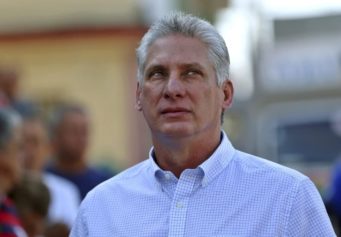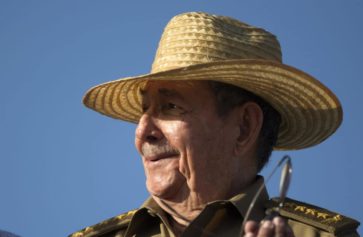Fidel Castro wants you to know that he is not dead.
Reports were swirling last week that the former Cuban leader was dead or near death, including a story in a Spanish newspaper that he was in a vegetative state after suffering a massive stroke.
But Castro wrote an article in the Communist Party newspaper Granma debunking all these claims and accusing enemies of Cuba of spreading “stupidities” about him.
“Birds of bad omen! I don’t even remember what a headache is,” he wrote.
In addition to his writing, the newspaper published pictures of Castro walking outside on a sunny day on what appeared to be a farm, wearing a straw hat and plaid shirt and using a cane. To prove the authenticity of the pictures, one photo shows him holding a copy of Friday’s edition of Granma.
The photos, Castro said, were “proof of what liars they are.”
It is a favorite sport of social media to start “Castro is dead” rumor campaigns. But the 86-year-old, whose health has been a subject of intense interest in recent years, wasn’t too pleased about this one. Castro resigned from the presidency of Cuba four years ago after 49 years as ruler. His younger brother Raul Castro succeeded him.
Castro also had the testimony of an independent source, Elias Jaua, a former Venezuelan vice president, who said on Sunday that he had met with Castro over the weekend. Jaua showed reporters pictures of the meeting and said Castro was lucid and in good health—though some of his writing led to questions about his lucidity.
While Castro had not written one of his “Reflections” opinion columns for state press since June 19, his last few Reflections were extremely short and somewhat odd, which left Cubans wondering about their former leader’s mental state.
But Castro said he had decided to stop the columns for a practical reason.
“I stopped publishing Reflections because surely it is not my role to occupy the pages of our press, dedicated to other work the country requires,” he said.
As for how he spends his time now, Castro wrote, “I like to write and I write. I like to study and I study.”
In his article, Castro also defended his role in the 1962 Cuban Missile Crisis on its 50th anniversary. The crisis brought the world to the brink of nuclear war when the United States discovered that the Soviet Union had placed nuclear missiles in Cuba.
Castro said he had no regrets about his actions or decisions. He said the missiles were necessary to stop a U.S. invasion of the island.
“Our conduct was ethically irreproachable. We will never apologize to anyone for what we did,” he said.


